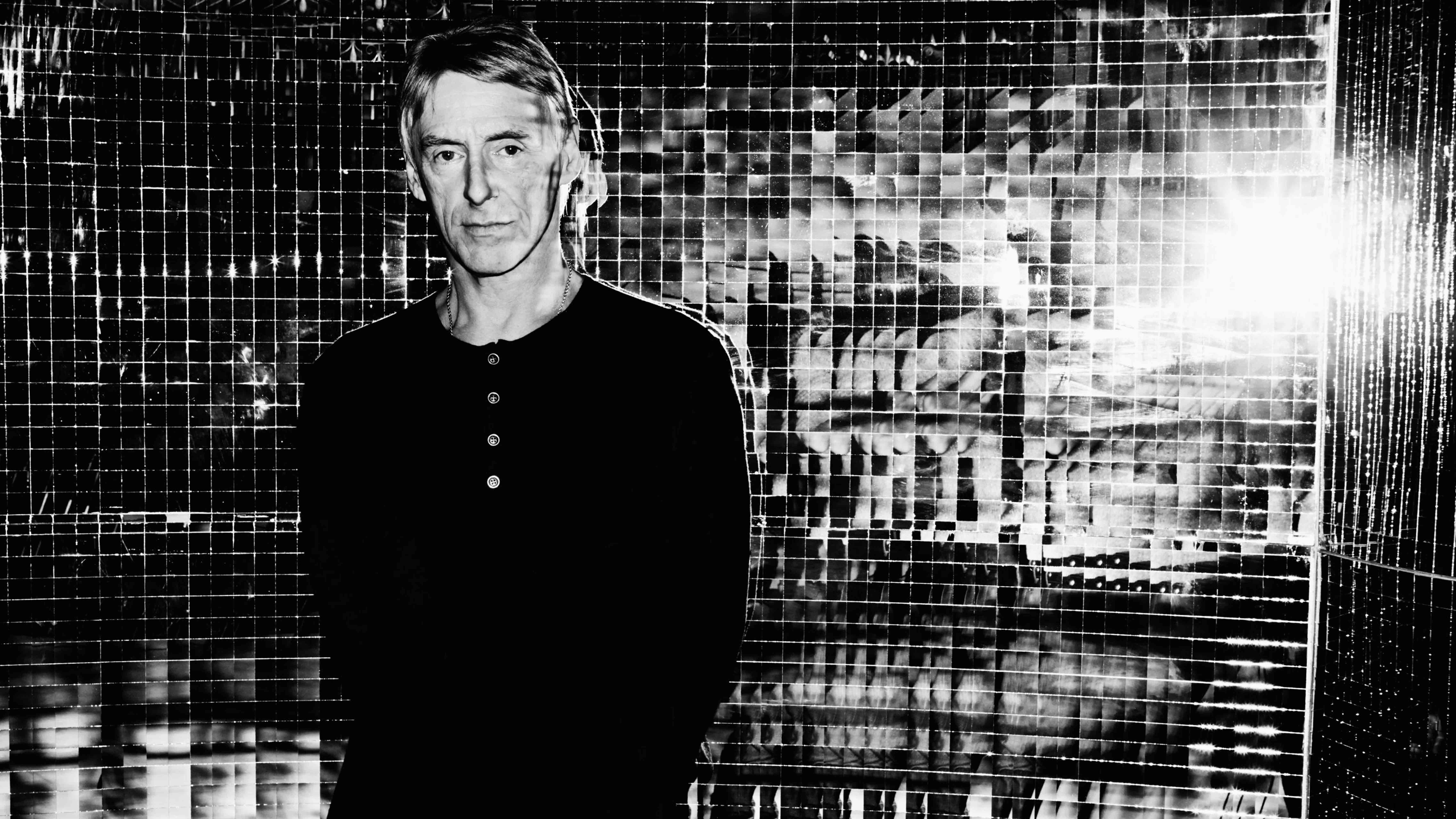One William Battie keenly noted that “Style is when they’re running you out of town and you make it look like you’re leading the parade.”
Punk, of course, made such ostracism look bloody spectacular, and perhaps nobody did it better than The Jam—who, in fact, were all the more punk for not looking very punk at all. Paul Weller, the band’s frontman who was long ago christened The Modfather, has long carried on his original band’s mission, decrying greed, venality, and the evil exploits of the power structure from the 1983 inception of his particularly stylish Style Council all the way through his rather distinguished and still unassailably vital solo career. And he’s worn it all with a singular panache, it must be said. (His hair alone, surely, is destined for enshrinement in the Victoria and Albert Museum.)
2015 saw him stoking his two great passions, clothes and music—“The only things that can hold my attention for more than twelve minutes at a time,” he admits. His most recent long-player, the intriguingly titled Saturns Pattern, finds him in wide-ranging form. Olde English folk colors the reflective “Going My Way”; he rocks fuzzed-out glam on the feral “Long Time”; the mystical “Phoenix” is surely the spaciest song he’s ever done; and the genre-hopping title track is a little bit funk, a little more prog, and a lot of fire.
He’s also launched a new clothing line, Real Stars Are Rare. It presents classic British tailoring from the point of view of a gent whose threads have endured all the rigors of rock and roll life without ever losing a whit of stylistic savoir faire.
Unsurprisingly, Weller has much to say about making music and always looking good doing it.
2008’s 22 Dreams was Paul Weller getting out of his musical comfort zone, and 2010’s Wake Up the Nation seemed to be about reigniting that old ideological fire. What would you say was the impetus for Saturns Pattern?
Well, the impetus was…I wanted to make another record. I knew what I didn’t want to make: just another traditional sort of album.
When you set out to make a record now, do you have that sense of urgency? That fire?
Absolutely man, yeah. Doesn’t mean I always pull it off. But I always go into it with that urgency, knowing that it doesn’t matter what you did last time. All that matters is now. And the wonderful thing about music is, there’s always somewhere else to go.
On the new album, you sing, “I know exactly why / I’m where I should be” What is the significance of that lyric? Is it autobiographical?
I would think B. B. King and John Lee Hooker went to bed the night before they died thinking, “I wish I would have played this or that better.”
Yeah, I guess so. It was a spontaneous sort of lyric, as kind of happens in the studio. Though I would say it’s taken me an awful long time to feel it—the better part of fifty years, really. But my place in the world is exactly where it should be, and I’m comfortable with all the good, bad, whatever. I’ve got a great appreciation for what I have and what I’ve done. Maybe it’s just about getting closer to mortality.
But you also write, “We’ve still got a long way to go.” Do you feel that you do?
Well, I hope so, mate. But who knows, really?
I meant musically.
Oh, I do really. I think my playing’s improved, my voice has improved. But honestly, do you ever stop learning? I would think B. B. King and John Lee Hooker went to bed the night before they died thinking, “I wish I would have played this or that better.”
You’re still that self-critical?
My band and I are always dissecting what we’ve done after a gig.
What inspired you to launch your clothing line?
The things that I really loved as a kid were music and clothes. And that’s still true. It’s just a labor of love, really.
Is there a particular meaning to the name?
It’s an old showbiz saying: “Real stars are rare; they only come out at night.” I just liked the name, and I think it conveys that the clothes are a bit more discerning.
Style seemed to be a way to express rebellion for kids in the ’60s and ’70s. Were you inspired by that as a kid?
Clothes and music just went hand in hand at that time. If you were into a style of music, you dressed a certain way: skinheads, mods. It helped to define you at a young age. Now it’s all just brands and labels. Whereas in the ’60s and ’70s the fashions came from the street.
Bowie has said that all those glam fashions were actually bought from the charity shops.
Yeah, and in the early days of punk, kids were making their own clothes; it was all handmade.
The Jam were obviously swept up into the punk zeitgeist, but you were actually also kind of defiant toward the prevailing punk style. Although, John Lydon has said that punk was never meant to be a uniform.
Absolutely, yeah, but that’s what it became. In the beginning, you even had soul boys going to punk gigs. There was a lot of crossover. Then it all just descended into this farce, really, this cliché. I never really believed in that whole “1977” thing, though. I thought that was just bullshit, really.
But the ideology was for real.
I’d missed out on the ’60s, and then the early ’70s were such a fucking drag, boring black and white. I was waiting for some kind of sign of the revolution. After seeing The Clash and The Sex Pistols, I just thought, “Our time is now.” And that changed everything.
Rock and roll just doesn’t have the same power and cultural impact that it once had.
Why do you think bands aren’t as political now?
I think it’s just reflective of the time we live in, really. It’s symptomatic of society’s values, everything is so market-led and media-led. The things we were inspired by were pretty extreme—pitched battles between the police and striking miners, people getting beaten up in the streets by the police…
But there’s still plenty to be angry about.
The same shit is still going on. Poor people are still being shat on and rich people are getting richer. But now bands are writing lyrics about sitting around with their girlfriends eating pizza, when there are so many other things they could be writing about.
There seemed to be so much at stake back then—but then, isn’t there always?
Well, rock and roll just doesn’t have the same power and cultural impact that it once had. The music and the politics and protest back then defined the generation. There are very few bands now that come off the council estates and have that sort of anger. There are exceptions, of course, but it all just seems so fucking bland now.
What keeps you going, then?
Well, I kind of hope that in my lifetime I do get to see some kind of fucking revolution against that.
So, ultimately, what do you think Saturns Pattern says about Paul Weller now?
I’ve listened to a lot of music in the last several years that I’d never listened to: electronic music, lots of film music, avant-garde, funk. So if anything, I’m opening to new things. Those are words to live by: be open to the possibilities in life, because you just never know what else might be out there to inspire you. FL










